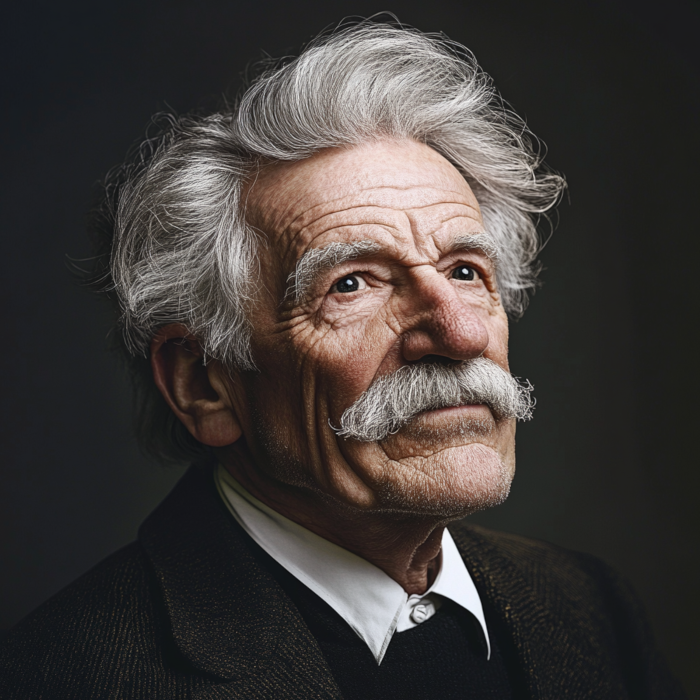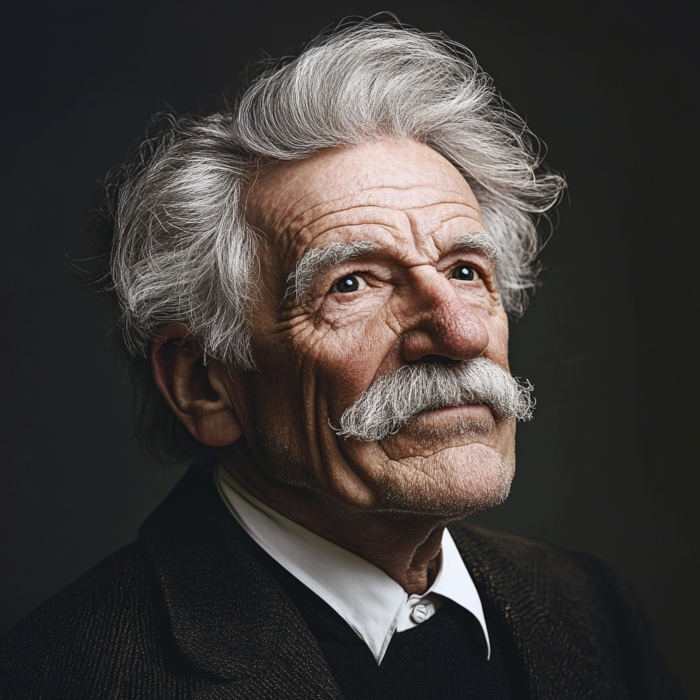


Albert Schweitzer (1875–1965) was a German-French theologian, philosopher, physician, and humanitarian who is best known for his work as a medical missionary in Africa and for his philosophy of "Reverence for Life." Schweitzer's diverse achievements in theology, music, medicine, and humanitarian work earned him international acclaim, including the Nobel Peace Prize in 1952. His life and work continue to be an inspiration for those dedicated to service, ethics, and the pursuit of knowledge.
Theological Work: Schweitzer was a prominent theologian and an influential figure in the field of biblical studies. His book The Quest of the Historical Jesus (1906) was a landmark work that challenged traditional views of Jesus by focusing on his historical context rather than purely theological interpretations. Schweitzer argued that Jesus was an apocalyptic preacher whose mission was misunderstood by later generations.
Musical Contributions: Schweitzer was an accomplished organist and a scholar of Johann Sebastian Bach. He published a critical edition of Bach's works and wrote extensively on the composer's life and music. Schweitzer's book J. S. Bach, le Musicien-Poète (1905), later translated into English as J. S. Bach, remains a significant contribution to Bach scholarship. He was also known for his performances and recitals, which he continued throughout his life.
Philosophy of Reverence for Life: Schweitzer developed a philosophical and ethical concept he called "Reverence for Life" (Ehrfurcht vor dem Leben), which became the central tenet of his worldview. This philosophy asserts that all life is sacred and that humans have an ethical duty to respect and protect all living beings. Schweitzer's reverence for life extended to both human and non-human life, and it influenced his humanitarian work and his approach to medicine.
Decision to Study Medicine: Despite his success as a theologian, philosopher, and musician, Schweitzer felt a deep calling to serve humanity in a more direct and practical way. In 1905, at the age of 30, he decided to become a medical doctor so that he could serve as a missionary in Africa. He studied medicine at the University of Strasbourg, earning his medical degree in 1913.
Founding the Hospital in Lambaréné: In 1913, Schweitzer and his wife, Helene Bresslau, who was a trained nurse, traveled to French Equatorial Africa (now Gabon) to establish a hospital in the village of Lambaréné. The hospital, which Schweitzer initially built with his own hands, began as a modest facility but grew over the years to serve thousands of patients from the surrounding region. Schweitzer provided medical care for diseases such as malaria, sleeping sickness, and leprosy, often working under difficult and resource-limited conditions.
Impact and Challenges: Schweitzer's work in Lambaréné made a significant impact on the local population, and his hospital became a symbol of humanitarian service. However, he also faced criticism for his paternalistic attitudes and for the limitations of his medical practices by modern standards. Despite these criticisms, Schweitzer's dedication to serving the people of Africa was unwavering, and he continued his work in Lambaréné for most of his life.
Nobel Peace Prize (1952): In recognition of his humanitarian work and his philosophy of reverence for life, Schweitzer was awarded the Nobel Peace Prize in 1952. In his Nobel lecture, titled "The Problem of Peace," Schweitzer emphasized the importance of ethical responsibility and the need for a global ethic that respects all life. He used the prize money to expand his hospital in Lambaréné.
Advocacy for Peace and Nuclear Disarmament: In his later years, Schweitzer became an outspoken advocate for peace and nuclear disarmament. He was deeply concerned about the threat of nuclear weapons and the potential for global destruction. In 1957, he delivered a series of radio broadcasts, known as the "Declaration of Conscience," in which he called for an end to nuclear testing and for international cooperation to prevent nuclear war.
Continued Work in Lambaréné: Schweitzer continued to work at his hospital in Lambaréné well into his 80s, despite his declining health. He remained committed to his patients and to the principles that had guided his life. Even in his later years, he was a tireless advocate for humanitarianism, ethics, and the protection of life.
Death: Albert Schweitzer passed away on September 4, 1965, at the age of 90, in Lambaréné, Gabon. He was buried in a simple grave on the hospital grounds, in accordance with his wishes.
Legacy: Albert Schweitzer's legacy is multifaceted, encompassing his contributions to theology, music, philosophy, and medicine. He is remembered as a pioneer of medical missions in Africa and as a philosopher who championed the sanctity of all life. His concept of reverence for life has influenced ethical thinking and environmentalism, and his life of service continues to inspire generations of humanitarians.
Cultural and Academic Influence: Schweitzer's life and work have been the subject of numerous books, films, and academic studies. His hospital in Lambaréné continues to operate, serving as a testament to his commitment to healthcare and humanitarianism. Schweitzer's philosophy has also been incorporated into discussions on animal rights, environmental ethics, and global health.
Recognition: Schweitzer received numerous honors during his lifetime, including the Goethe Prize and the Grand Cross of the Order of Merit of the Federal Republic of Germany. His influence extended beyond his immediate work, as he was a role model for many who sought to dedicate their lives to the service of others.
Albert Schweitzer's life was a remarkable blend of intellectual achievement, artistic talent, and humanitarian service. His philosophy of reverence for life and his tireless work in Lambaréné have left an enduring impact on the world. Schweitzer's legacy as a physician, philosopher, and advocate for peace continues to inspire those who seek to make a positive difference in the world, and his life stands as a powerful example of the potential for one individual to effect profound change through compassion, ethics, and dedication to the service of others.

We use cookies
We use cookies and other tracking technologies to improve your browsing experience on our website, to show you personalized content and targeted ads, to analyze our website traffic, and to understand where our visitors are coming from. Privacy Policy.